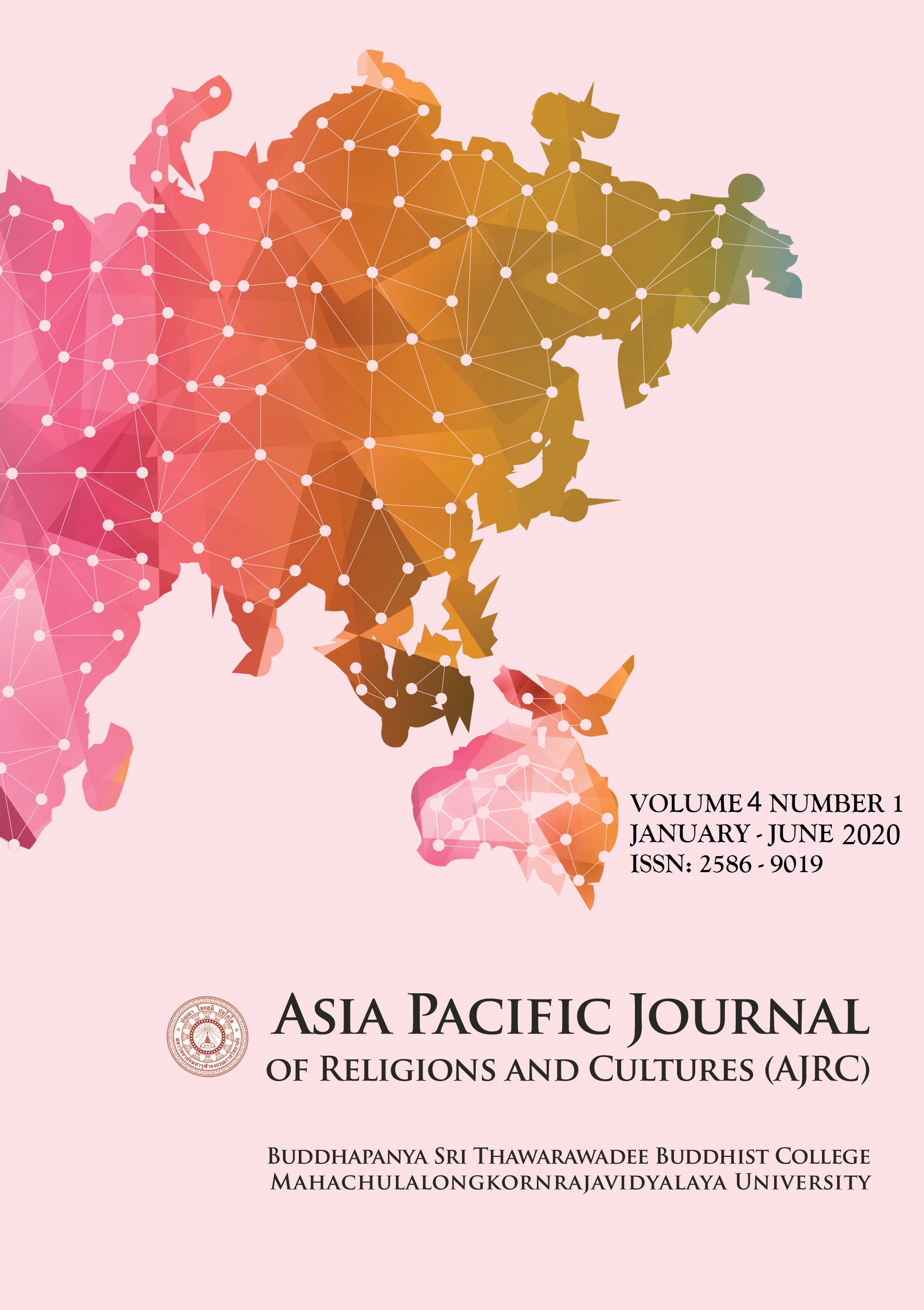Social Research on Perspectives towards Thai Traditional Business SME Ethical Management
Main Article Content
Abstract
This research aims to analyze the perspectives about Thai Traditional Business SME, focusing on the management style of the Thai Traditional Business. Thai traditional massage has been worldwide well known for the unique, natural and amazing treatment. Therefore, it is crucial to understand the overall contexts of their management and operations as to plan for the sustainability in the future. The research population refers to Thai Traditional Massage SME owners. The qualitative approach, based in the constructivist paradigm, is principally employed, utilizing the depth observational interview with 20 business SME owners of the Thai Traditional massage service to apprehend and interpret insight of their operation. Means and Standard Deviations are then presented to stretch the phonemic and social realities. The findings disclosed that the business and operation model of the majority of the business entrepreneurs operates day-time services. Their majority of investment come from the private equity and loans from public financial institutions. The Thai Traditional Message business is organizationally structured, though loosely to some extent. The employees’ work responsibilities are evidently supervised and divided, whereas the power of management still belongs to the owners’ families of the businesses. The importance challenge observed from the research is to consistently perpetuate employees’ professional skill and competencies. Entrepreneurs have focused their quality of services to a key strategy to satisfy customers. However, the facing critical barriers were the shortage and high turnover of employees with sound skills. The Thai Traditional a service charges are from 500-2,000 baht for 30-60 minutes per time, and Sundays is the most popular for customers.
In this work, efforts is being made to uncovered some specific strategies that can be used to managed context information that reaches the center of decision making, the work is concluded with a detail comparison of the strategies to enable context application developers make right choice of strategy to be employed in a specific situation.
Article Details
References
Smith, A. (1920) The Wealth of Nations, 1776) In the 1920s, Alfred Marshall was
Still using the idea that Services "are immaterial products." (Marshall, A.,
Principles of Economics, 8 the edition, London: Mac Millan,
Lovelock, C. and Wirtz, J. (2011), Services Marketing: People, Technology,
Strategy, 7 the ed., Upper Saddle River, New Jersey, Prentice Hall
Koontz, Harold and Cyril O’ Donnell Principles of Management an Analysis of Managerial
Functions NewYork.McGrawHillBookCo.1955
Gummesson, E., “Implementing the Marketing Concept: From Service and Values to Lean
Consumption,” Marketing Theory, [Invited Commentary], vol. 6, no. 3, 2006, pp
291–293).
Schembri, S., “Rationalizing Service Logic, or Understanding Services as Experience?“
Marketing Theory, vol 6, no. 3, 2006, pp 381–392.
Jourdan, P., "Search or Experience Products: an Empirical Investigation of Services, Durable
And Non-Durable Goods", in: Asia Pacific Advances in Consumer Research,
Volume 4,
Paula M. Tidwell and Thomas E. Muller (eds.), Provo, UT, Association Consumer Research,
(2001), pp. 167-174 Online: http://acrwebsite.org/volumes/
11342/volumes/ap04/AP-04
UYSAL, H Tezcan & Mehmet Selami YILDIZ (2013), “Effect of Organizational Levels on
Individual Service Quality in Health Service: A Research on Doctors”. Iktisat Işletme ve
Finans Dergisi. 28(329), pp.21-48.
Parasuraman, Zeithaml and Berry. (Parasuraman, Valarie Zeithaml and Berry (1985)) in the
SERVQUAL model: reliability, responsiveness, competence, access, courtesy,
Communication, credibility, security, understanding the customer and tangibles.
Bank of Thailand. "The trend of growth of the Thai Traditional Message Thai Traditional Message spa industry," Economic Analysis. 12 (3):
January, 2012.
_________________"Business Massage and Thai Traditional Message Thai Traditional Message spa" 25 March, 2012.
Boonchom Srisa-ard. Statistical Methods for Research, Volume 1 Edition 3: A Suviriyasan,2006.
Boakhao Charuchinda. Guidelines for the management of the nursery, pre-school preparation.
Before proceeding. Chiang Mai University, 2008.
Patitta Tantivejakul. "Medical tourism," tourism pamphlet. 22 (1): 29-41; January-March, 2009.
Parichat Deepiukvaan. Management pottery business. Tambon Dan Kein, Chokechai District,
Nakhon Ratchasima. The special MBA issue of Mahasarakham University, 2008.
Yut Gaiwan. Statistics for research. Bangkok: The pimdee, 2006.
Woradet Phoradok. Factors that important to the selection of Thai Traditional Message Thai
Nakhon Ratchasima. The special MBA issue of Mahasarakham University, 2010.
Vinit Rungpoon. "Thai Traditional Message Thai Traditional Message spa and health tourism in Thailand", the booklet CAT. 52 (4): 37-50; September, 2008.
Vittaya Darndamrongkul. Administration. Bangkok: Wirun Education Limited, 2008.
Siriwan Sareerat and group. Strategic marketing and marketing management. Bangkok:
Thira film and Sitec, 2005.


